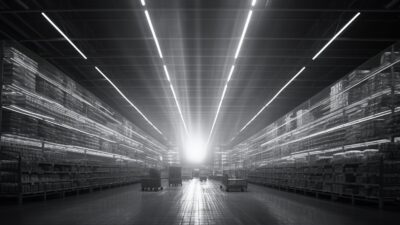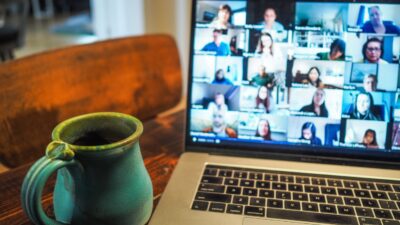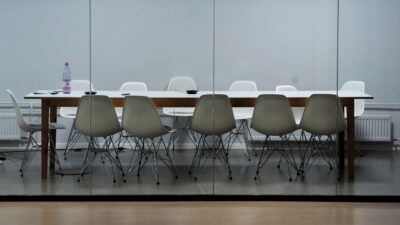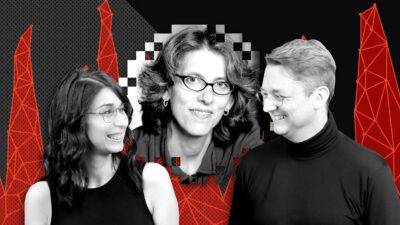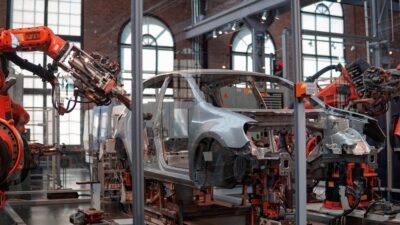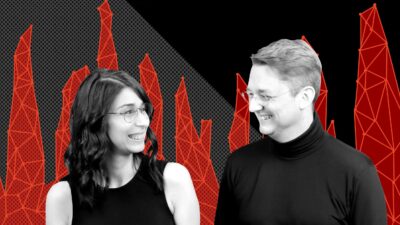Sandra Peter and Kai Riemer
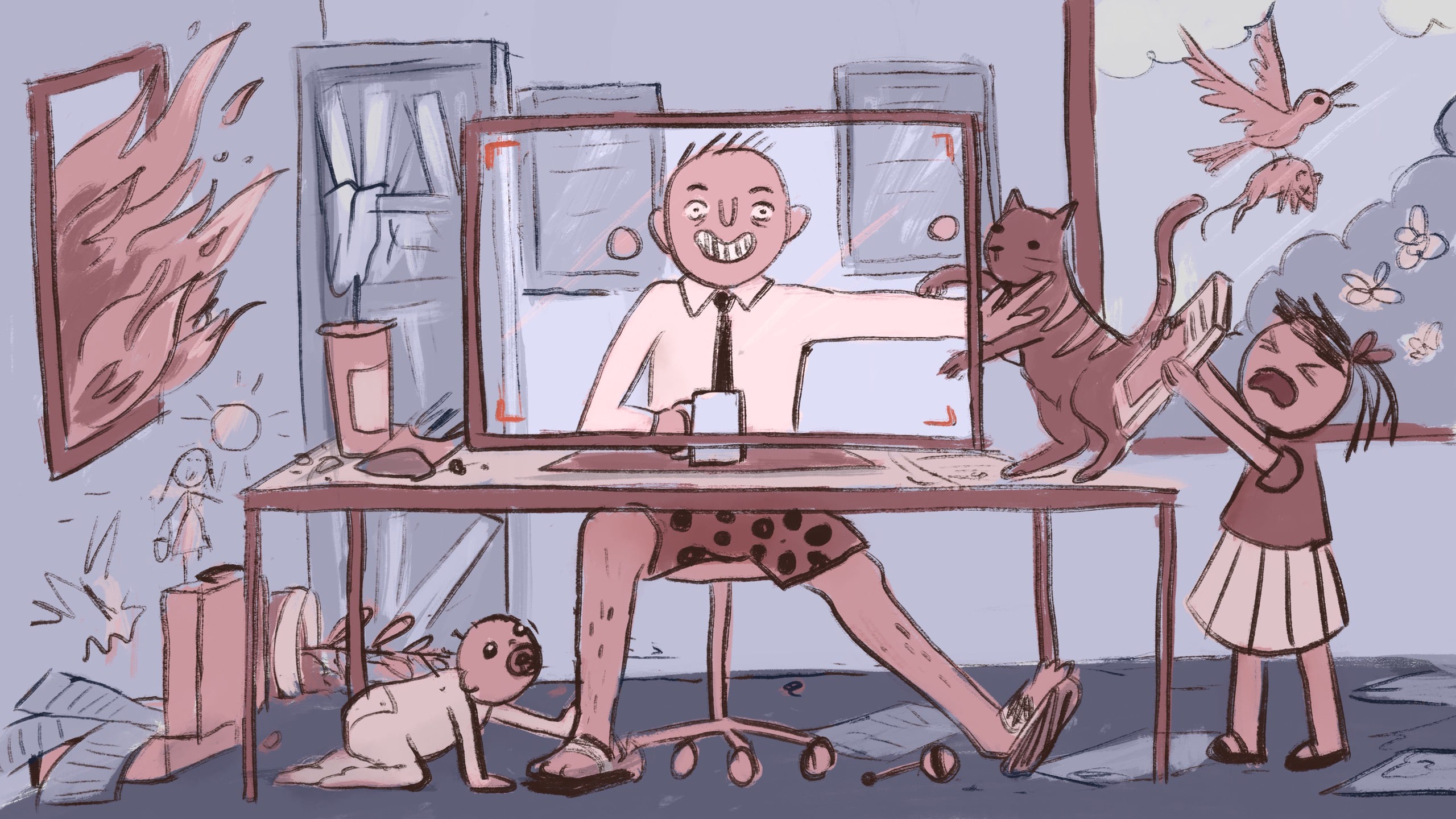
Lessons from COVID-19 on The Future, This Week
This week: working from home, hybrid offices, climate, Gen Z, AI and UBI, the surprising lessons we’ve learned from the COVID-19 pandemic.
Sandra Peter (Sydney Business Insights) and Kai Riemer (Digital Disruption Research Group) meet once a week to put their own spin on news that is impacting the future of business in The Future, This Week.
The stories this week
01:36 – What were the most surprising lessons we’ve learnt from the pandemic?
Other stories we bring up
Our previous conversations on universal basic income, artificial intelligence confusion, climate and the environment, and Gen Z
Our interview with Jonathan Haidt on Gen Z in The Future of Power
Venice’s canals without tourists
Translation AI had trouble keeping up with COVID terminology
COVID will have negligible impact on climate crisis
Spain launches the largest test yet of no-strings-attached income
Working harder during the pandemic
Follow the show on Apple Podcasts, Spotify, Overcast, Google Podcasts, Pocket Casts or wherever you get your podcasts. You can follow Sydney Business Insights on Flipboard, LinkedIn, Twitter and WeChat to keep updated with our latest insights.
Our theme music was composed and played by Linsey Pollak.
Send us your news ideas to sbi@sydney.edu.au.
Dr Sandra Peter is the Director of Sydney Executive Plus and Associate Professor at the University of Sydney Business School. Her research and practice focuses on engaging with the future in productive ways, and the impact of emerging technologies on business and society.
Kai Riemer is Professor of Information Technology and Organisation, and Director of Sydney Executive Plus at the University of Sydney Business School. Kai's research interest is in Disruptive Technologies, Enterprise Social Media, Virtual Work, Collaborative Technologies and the Philosophy of Technology.
Share
We believe in open and honest access to knowledge. We use a Creative Commons Attribution NoDerivatives licence for our articles and podcasts, so you can republish them for free, online or in print.
Transcript
Disclaimer We'd like to advise that the following program may contain real news, occasional philosophy and ideas that may offend some listeners.
Sandra We're getting very close to the end of the year and the end of Season 8. And so we've decided to have a look back, not only at the week that's been, but pretty much the year that's been.
Kai Looking back to look forward is the motto of this episode. Because this is The Future, This Week, there still is a pandemic raging across the world. And we've talked a lot about COVID-19, first on The Future, This Week in Season 7, and then on Corona Business Insights.
Sandra And so before we finish up this season of The Future, This Week, we thought it's worth looking at the most interesting, the most surprising lessons that we've taken from the pandemic, and from doing almost 40 episodes of Corona Business Insights, and from over 100 articles that we've had on the COVID Business Insights dashboard. So we want to take this opportunity just to reflect back on that. And we know it's been a big week, and there's still news of the week, like the FTC and the State's suing Facebook to try to force it to divest from Instagram and WhatsApp.
Kai I say good luck with that, given how technologically intertwined these platforms have become Facebook been working hard to make it almost impossible to make this divestment move.
Sandra But we want to reflect back on a few of the big interesting, surprising things we've learned from the pandemic.
Kai So let's do this.
Intro From The University of Sydney Business School, this is Sydney Business Insights, an initiative that explores the future of business. And this is The Future, This Week where Sandra Peter and Kai Riemer sit down every week to rethink and unlearn trends in technology and business. They discuss the news of the week, question the obvious and explore the weird and the wonderful.
Sandra So we're sitting looking back at the year that's been, at 2020, and reflecting on really just how difficult this has been for everybody.
Kai And we're actually lucky here in Australia that we got more or less rid of the virus, New Zealand and Australia have done really well. But that is unfortunately not true for the rest of the world.
Sandra Indeed, as we're recording this Europe, the Americas, parts of Asia are still in the midst of the pandemic, and really in the midst of a health crisis. We do, however, have a vaccine.
Kai Yeah, first vaccinations in the UK, which is good news and promises that 2021 might be a better year. I mean, 2020 really has been a bit of a shit year.
Sandra And while we're mindful of the ongoing health and economic crisis, looking back at 2020, we have taken away some interesting and surprising lessons from this pandemic. And we thought we'd take a moment today to go over how this pandemic has allowed us to rethink some common wisdoms that we took going into the pandemic, whether they were about work, or whether they were about climate, or about how we organise society, or how technology can help us.
Kai So it's always really important to learn from a crisis. And this has been a big one, unprecedented for most people's lifetimes. I mean, any crisis allows us to learn something about how to deal with the crisis itself, but also a crisis always reveals something about the context in which it happens. And so this big crisis provides us with the opportunity to take a look at some of the things it's impacted in ways that wouldn't have been possible without the crisis.
Sandra So what have you taken away from how we've responded to the pandemic?
Kai Well, besides the fact that the world needs to prepare better for future pandemics, I think a crisis like this, unprecedented as it is, disrupts not only ways of life and ways of working and many practices that we have, but they also allow us to foreground certain taken-for-granted assumptions that we hold about how work should be conducted, who conducts work or the role of technology. And by foregrounding these taken-for-granted assumptions, we're in a better place to understand work, for example, and to bring about change, to do new things that wouldn't have been possible without that disruption. I think that is really interesting and something worth reflecting on.
Sandra And this crisis also allows us to really talk about some ideas that weren't really mainstream or palatable before. And just like its challenged assumptions around working from home and now it's made it palatable to talk about working from home, pretty much for everybody, not as an exception to the rule, but as just part of normal work. It's also allowed us to talk about big ideas that weren't really mainstream before, like universal basic income. And really times of crisis have always played a really big role in what were acceptable ideas and acceptable mainstream political or social conversations. And we know this before, where, for instance, in the UK, after the Second World War, it became acceptable to talk about things like universal health care. Or in the US after the Great Depression, Social Security became an acceptable topic. Big crisis have always allowed extreme ideas to become more palatable to the mainstream. And this is something that's come up again and again during COVID-19. In politics, it's known as the Overton window. It's a concept that arose back in the 90s, from an executive at the Mackinac Center for Public Policy, this was a conservative think tank in the US. And Mr. Overton, who's passed away about 20 years ago, really was trying to explain to people how this shift happened in moments of crisis, where it does become more acceptable to discuss issues that were considered either unthinkable or very radical before such events and that now are either seen as more sensible or more acceptable to be discussed mainstream.
Kai And so we thought we'd take a look at some of the most interesting things we've learned in almost 40 episodes of Corona Business Insights. On the one hand, where the conversation has shifted, and things that were formerly unthinkable have become palatable, like working from home and universal basic income, or areas where common wisdoms that we held true before have now been revealed as too simplistic and where new thinking is now required, concerning, for example, the role of Gen Z and work, the environment, or the role of AI and automation in responding to pandemics.
Sandra So we'll have a look at five of these surprising insights, surprising lessons learned from the pandemic. And since we talked about the Overton window, maybe a good one to start with would be universal basic income.
Kai We talked about universal basic income in quite some detail on this podcast. And in an article on Sydney Business Insights a couple of years ago, we distinguished different conversations around us different viewpoints around universal basic income. But it has always been an idea has always been mired in ideology, it's been politically difficult to make inroads into actually implementing those ideas beyond a few pilots that have happened across the world.
Sandra And interestingly, this happened to be the first Corona Business Insights episode that we did, because we figured that with the onset of the pandemic, and so many people losing their jobs, and the world pretty much entering into a long period of recession, universal basic income would be one of those things that could now fulfil a new role.
Kai Rather than engaging in difficult to administer systems like JobKeeper and JobSeeker and all these government programs that kept people in their jobs. We figured that universal basic income, if a society had this in place already, would make the society much more resilient to these shocks because people wouldn't have to worry about their employment, there would be an automatic safety net, people would be able to engage in essential work would shift their attention in helping with the pandemic and it would make a society much more flexible in how it responds to the pandemic.
Sandra And since we've done that episode, and over the last nine months, we've really seen a renewed discussion around universal basic income. With now mainstream pilots being run in places like Spain, which is investing in a scheme that will cost up to 3 billion euros a year, it's starting up with a payment of about 1000 euros a month to citizens to spend however they choose, so truly basic income, not yet universal, it's it's now for about 850,000 of the poorest families in Spain, but with the idea to roll this out and make it universal basic income.
Kai One reason certainly has been that any other measure of reacting to the pandemic has been incredibly expensive, which removes one of the objections to universal basic income which has always been financial, and also lets UBI be seen as an easy to administer and therefore appealing measure in building pandemic resilience.
Sandra And as we've discussed from UBI trials that happened before the pandemic, there seems to be very promising evidence that the benefits include better education, better school attendance, and better health for those receiving it. But we know now also Germany has joined the countries that are trialling this where millions of people have applied to be part of the trial, looking at giving people 1200 euros a month to spend, however they see fit in the UK as well, we've got more than 100 lawmakers who are pushing for similar trials to happen there.
Kai So what we're saying is that the pandemic has shifted the Overton window, turning UBI from a rather fringe concept or a theoretical idea that is being discussed in academic circles and among politicians to something that now offers a concrete solution to setting societies up to deal with future crisis, with future shocks, which might come from future pandemics, or indeed, the fallout from climate change.
Sandra And speaking of climate, this was also one of those areas where the initial stories we've seen seem to go with the current wisdom, which was if you slow down human activity that this will have positive effects on the environment. And very early on, we were discussing the very positive stories that were coming out of the pandemic, they were all around the falling pollution. We were seeing images from NASA and from the European Space Agency showing the lack of pollution across places like China, where the economic activity had stopped, but also around Italy, Spain, and the UK as economy slowed down, as tourism slowed down. Nature seemed to be rebounding and the pollution levels were falling across the board.
Kai We saw reports from scientists who for the first time were able to study the song and the interaction between whales without cruise ships interfering. Or in India, where the reduction in pollution cleared the air so that people for the first time could see the mountain ranges, and scientists for the first time were able to establish a baseline in pollution measurement, which will come in handy in doing studies for indeed reducing pollution levels going forward.
Sandra And similarly, we saw early on pictures from Venice where residents were saying that this very abrupt reduction in tourism was having such a tremendously positive impact, with the canals being so much cleaner than they had ever been. As we know, Venice's hosts to millions of tourists every year who generate mountains of garbage, they use ferries and water taxis, they put tremendous stress on ancient buildings. And you've also got the massive cruise ships with 1000s of people each that add to air pollution caused erosion to the marine environment, and so on.
Kai And while these insights are all to be expected, that the reduction in human activity might be good for the environment, surprisingly, we also saw that the reduction in human activity could have detrimental effects on the environment.
Sandra The drop in tourism in Venice, for instance, ends up costing the city up to a billion euros in lost revenue. And that's actually the same money that goes towards conservation budgets that goes towards cleaning up the canals that goes towards maintaining the city and restoring the ancient buildings. Most of these programmes derive their budgets from the money that tourism brings in. And whilst the city might look nicer, without the massive cruise ships, the water quality hadn't actually improved at all, all that happened was that sediments had fallen to the bottom and were now less visible, the buildings continued to decay, and so on. So many times this temporary reduction just goes to hide the actual problems and in the long term actually have detrimental effects on the environment.
Kai And so what we're saying is that why tourism is often seen as problematic for the environment, it often also directly contributes to preserving the environment. And we see this in many other places in the world where income from tourism is directly linked to conservation efforts, and with less travel and less tourism, valuable funding has now gone missing that goes into the protection of species or the protection of rainforests, for example.
Sandra We've seen for instance, in the Amazonian rainforest that the last year represented a 12 year high in deforestation. And we've also seen scientists begin to have more data that in the long term in terms of co2 emissions COVID-19 seems to have a very negligible impact with global heating being cut just by 0.01 degrees Celsius by 2030. So negligible in terms of the climate crisis, and this is based on Google and Apple mobility data. So whilst the initial estimates were that emissions have dropped by more than 25% in April this year, by now we know that this has negligible long term effects.
Kai Or indeed, detrimental effects as both corporations are financially hit and economies are financially hit. There might be less inclination to put extra funds towards the people protection of the environment or the climate accord.
Sandra But for me one of the most interesting and surprising and counterintuitive learnings from this pandemic has been the one around the Gen Z. And we did a whole episode on this on Corona Business Insights and just reminding people that Gen Zed, or Gen Zee as it's known, loosely describes people who are born after 1995 until about 2010. And this is of course, in contrast to Millennials who are born after 1980, who come after Gen X who come after the baby boomers.
Kai And so while Millennials were the first generation to grow up on the internet, it is Gen Z that is widely regarded as the true digital natives. And so when the pandemic hit, and everyone had to work digitally, it was intuitively assumed that Gen Z would be set up the best to actually cope with the situation and be just fine working digitally and from home.
Sandra Given that we all accepted that this generation was exposed their entire lives to the internet, that for most of their lives, they use social media and social networks and mobile devices. We assume that as we move to a working from home situation that relies entirely on technology, that somehow this generation would thrive under the conditions that make use of the digital environments that they grew up in.
Kai But it turns out that that wasn't really the case. Gen Z was struggling much more than expected, in fact, more than older generations, early research by Microsoft showed that young people had a much harder time juggling work/life balance at home, or indeed reported higher levels of stress and mental anxiety from working from home than, for example, the baby boomer generation, who are widely regarded as not as digitally savvy.
Sandra So this forced everyone to have a deeper look at why this was happening. Indeed, why was it that the generation expected to do best was the one that was struggling most with it?
Kai And it turns out that the problems are actually of a social nature. It wasn't the technology, it wasn't the idea of working digitally that was the problem here, but the remoteness, the fact that the living arrangements at home might not be set up, Gen Z live in small apartments and shared houses sometimes, but also the fact that they are not as embedded into the social structures at work, as many of the older generations are.
Sandra What's more Gen Z was already the generation that reported the highest levels of depression, of anxiety and suicide of any of the previous generation. And we know from research that we've also featured in our podcast series in our interview with Professor Jonathan Haidt, that this is the generation that is less prepared than any other one to have the really hard conversations to deal with ambiguity to deal with uncertainties and with difficulty in life, as they are the generation that grew up, not only with helicopter parenting and being overprotective, but also a generation that grew up in the call-out culture that dominated social media. Hence, the generation that tends to lack the resilience of previous ones.
Kai And so it really has opened up a conversation about resilience and how resilience resides in the networks that we're embedded in, and the fact that young people struggle more not because they're young, but because they have yet to develop the kind of networks of support in organisations that would hold them in good stead during the pandemic, but also that it becomes much harder to develop these relationships during the pandemic when everyone's at home and Zooming into work.
Sandra So this has really presented an opportunity for organisations not only to better understand Gen Z, but to think about how they can accommodate Gen Z differently and do more for them during the pandemic rather than less. And speaking of counter-intuitive insights for organisations, there were so many assumptions around working from home that were challenged by the pandemic. First and foremost, the fact that working from home has always been framed by organisations as a work/life balance issue, and on the whole, something that would have a positive impact on workers.
Kai Which means working from home was portrayed rather simplistically, but the pandemic and the fact that everyone has to hastily move into the home to do work, has really opened up conversations around the complexities of working from home and that it isn't necessarily a net gain for productivity when houses are not set up for working from home, or people indeed tend to work longer hours to make up for fears that they would be slacking off when working from home.
Sandra And just to paint a bigger picture around that. We know that organisations have asked people to work from home and that is indeed in place at many companies with many Australian companies asking people if they can to still work from home and expecting them back at the office in some numbers, only at some point next year. We know that Gartner research shows that about 80% of companies have plans to have their staff work remotely at least part time going forward. Here in Australia, it's expected that the proportion of people who will regularly work from home will probably double from pre-pandemic to post-pandemic numbers, settling in probably somewhere around 30-40%. But as you've highlighted, the time people spent working from home during the pandemic really brought into focus things like socio-economic inequality. And while it turns out that in some respects working from home is better for some people than for others, depending on your setup. We also know that for most people, the amount of hours they've worked has gone up quite significantly. And in the US, that number was huge, was at about 30-40%, and we have research out of Harvard and NYU that if you average it out, people worked almost an hour longer every day. Which meant that once companies started looking into why this is happening, and why working from home didn't have as positive an effect as we previously thought, the main insight was that really workers struggled to recreate the ease with which they communicated with which they accessed information, or they could rely on other people in their teams or in their organisations to solve problems or to create the solutions that they were after together.
Kai And so another thing revealed by these insights is that work is not a collection of individual tasks that can just be moved around and be done from anywhere. Work is a social endeavour that needs embedding in social structures. So working from home going forward will likely become part of what has now been termed a hybrid form of working where new roles for the office will be sought, where a balance between working remotely and working onsite will have to be found. And where new ways to manage teams that now work across these different environments will have to be trialled and researched as well.
Sandra And we'll include a link in the shownotes where we discuss some of the benefits, but also some of the perils of hybrid work. Because while hybrid offices could be the best of both worlds, there is a danger that it becomes the worst of both worlds, in that organisations end up with an in group and an out group.
Kai And that's also really one of the other interesting things that this disruption from the pandemic revealed for me, which is the role of the office, not just as a place to carry out work, but as the locus of power. If we want to make hybrid work arrangements work for everyone, we need to de-centre the office as the place where decisions are being made. Because otherwise, we end up with two different worlds, those who are in the office who are part of those decision processes, and those who are tethered remotely to you know, dial into meetings, for example. So proposals are now to say that meetings are held online, regardless of where you are. It's not a group in the office and some people dialling into the conference room, but that everyone is actually at their desk to create a truly hybrid environment where the role of the office has to be fundamentally rethought as well.
Sandra And one last insight before we wrap up today's episode, since it is The Future, This Week, we have to talk about AI.
Kai And the view that automation could be the saviour during the pandemic.
Sandra Expectations are always really high for machine learning and artificial intelligence, so expectations were really high for AI during the pandemic, the idea was that the help would come not only in the fight for a cure for COVID-19, but also in automating work during the pandemic. And before we think again about the role of artificial intelligence in unprecedented crisis, it's worth reminding ourselves what these algorithms do.
Kai Well, essentially, unlike traditional computing, where we programme a set of instructions into the machine that we then execute, machine learning or deep learning has to be fed with large amounts of data that is prepared by humans, that is labelled data which the algorithm then can learn patterns from, to make predictions for future outcomes.
Sandra So the data that goes into machine learning algorithms always describes our past collective behaviours, whether that's the things that we buy, or the things that we search for on the Internet, or the things that get most click through in advertising. So deriving these predictions about what people will do in the future, based on what they've done in the past works really, really well when those patterns and when the environments are reasonably stable, where the past is a good predictor of the future.
Kai And so, the unprecedented changes that the pandemic brought this disruption really foregrounded the limitations of these technologies, when it comes to making predictions from the past to the future. When the future has now radically changed with the crisis coming in.
Sandra Going into the pandemic, one of the constants in the news was the success that AI had in medical imaging. And that has consistently been one of the success stories, whether it was tumours that were being diagnosed or lung disease or other things. But AI in Clinical decision-making disappeared quite quickly from the news very early on, as algorithms weren't able to identify CT scans with COVID-19, as the data they had to go on was usually things like pneumonia. So early on the disease was misdiagnosed by such algorithms. So very early on, when people were overwhelmed by the number of cases, AI failed to provide a solution.
Kai And in order for algorithms to catch up with the disease, we had to train it with 1000s and 1000s, of labelled images that humans would identify showed traces of COVID-19. But initially, at a time when many of the experts were actually doing the work of saving lives, that wasn't possible. So initially, AI wasn't really able to help us.
Sandra But really a lot more interesting is what happens when a shock or a crisis like COVID-19 hits places that are almost fully-automated, that is warehouses, advertising, search engines, restocking, when people flocked to hand sanitizer and toilet paper like we did here in Australia, they not only change what they buy, hence, the algorithm can't rely on past decision, but it also changes the conditions under which they buy. So not only do we now move from you know, phone cases and Lego to toilet paper and hand sanitizer, but we make decisions based on things like the speed of delivery rather than the price tag on the hand sanitizer.
Kai So it turned out that companies like Amazon or Alibaba, whose large warehouse operations and restocking operations rely heavily on predictive algorithms, had to intervene, people had to step in when the algorithms couldn't make sense of what was going on, predictions were vastly off. Also, recommendations for customers were vastly off. If I put face masks in my shopping basket, algorithms would assume that we're sick and would then recommend medicine, when in fact it was just for protection. So humans had to really step in, and it took quite a while for these algorithms to settle in and make sense of the now radically changed behaviours.
Sandra And really, the insights went a step further to highlight, maybe for the first time, just how interdependent the algorithms that different companies use are. So for instance, when Amazon decides that they want to tweak their algorithms that suggest people what to buy next, this would have knock on effects to how much people want to spend on ads on various pages, not only on Amazon, but on the Internet. So the algorithm that decides how much an ad costs, by opening up a bid for the ad on a certain page, is part of an ecosystem of algorithms that suggest what you buy next, that suggests how inventory is being managed, that suggests how stock moves around the country, and that asks companies to pre-ship some of their products or services, or indeed how postal services decide on how to dispatch stuff to people.
Kai But it's not just in logistics and buying patterns that AI got derailed. It's also in the ways in which we talk to each other online. There's evidence that conversational agents could no longer make sense of how we speak to each other online as the pandemic introduced new vocabulary, as what we talk about, working from home, 'Zooming', all the kind of conversations we have about what we do in the home during the pandemic...
Sandra Social distancing.
Kai Social distancing. All these things changed, and all of a sudden, the algorithms that would predict what comes next in a conversation or indeed are used to translate texts on the Internet, had a hard time and largely failed, at least during the first months of the pandemic.
Sandra So again, taking a step back, the lesson learned from the pandemic was that automation, in particular this kind of automation, the one that is predictive from using large amounts of data, is not useful at all during that type of disruptive shifts that we've seen with the COVID-19 pandemic.
Kai So stepping back from these stories, what we can see is that unprecedented changes from crisis like this pandemic, challenge taken-for-granted assumptions, let us see things that were formerly hidden because they were just normal, in the background, second nature. And so in the process, open up new opportunities for research into managing dispersed teams, for the generational role at work, for automation at work, for the way in which work is organised across work/life boundaries, the environment and many, many more interesting aspects that have been revealed by the pandemic.
Sandra So a really good opportunity, not only for us, but for many of our colleagues to contribute to the conversation. And indeed, many of our colleagues here at the Business School have done just that.
Kai And so, many of these initial insights and many more to come, you can find on our COVID business impact dashboard under sbi.sydney.edu.au/coronavirus.
Sandra But that's all we have time for today.
Kai Thanks for listening.
Sandra Thanks for listening.
Outro This was The Future, This Week, an initiative of The University of Sydney Business School. Sandra Peter is the Director of Sydney Business Insights and Kai Riemer is Professor of Information Technology and Organisation. Connect with us on LinkedIn, Twitter and Flipboard and subscribe, like or leave us a rating wherever you get your podcasts. If you have any weird and wonderful topics for us to discuss, send them to sbi@sydney.edu.au.
Close transcript

